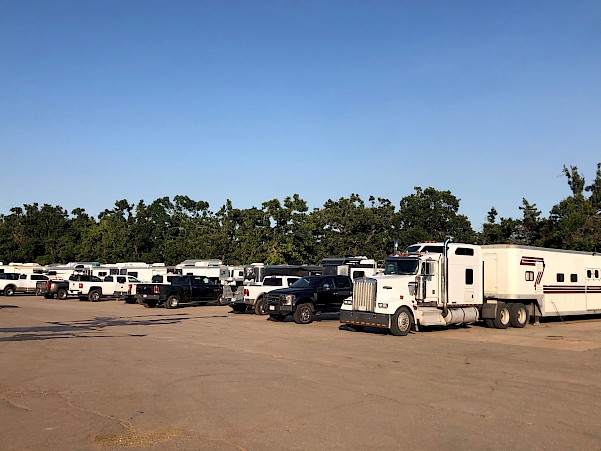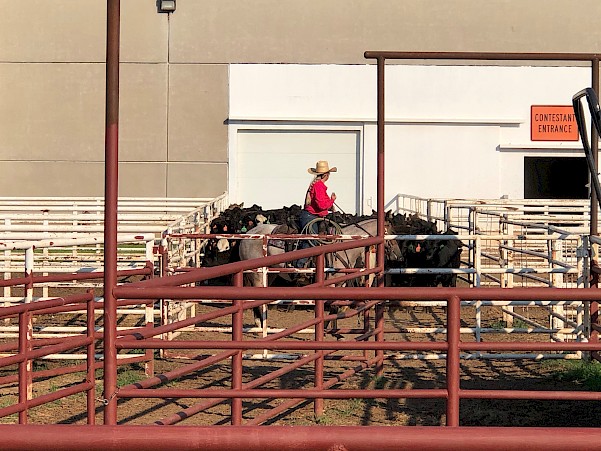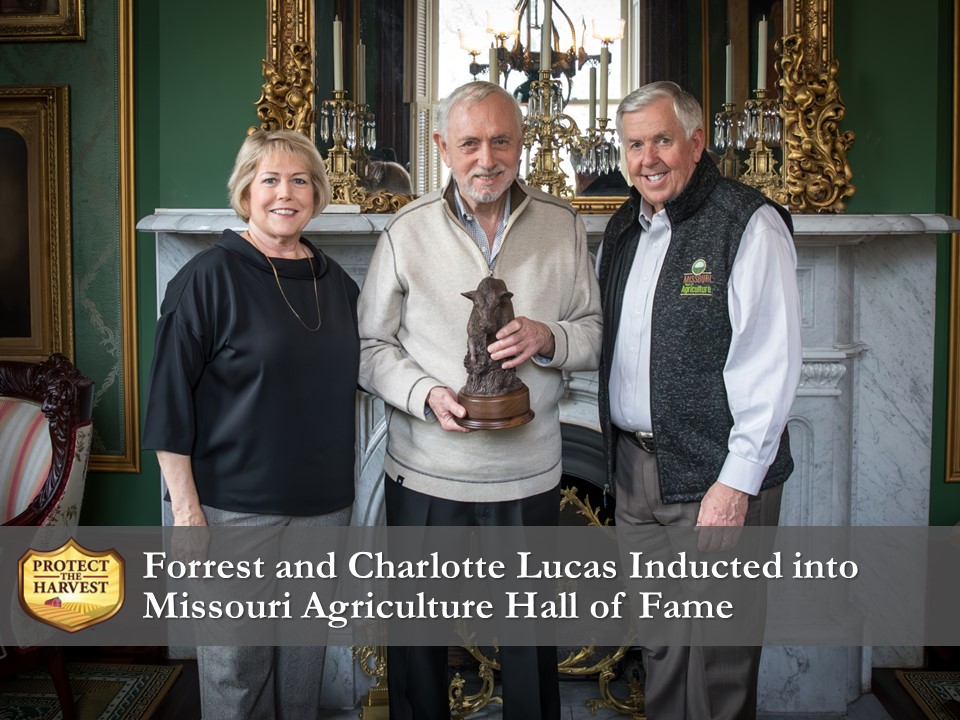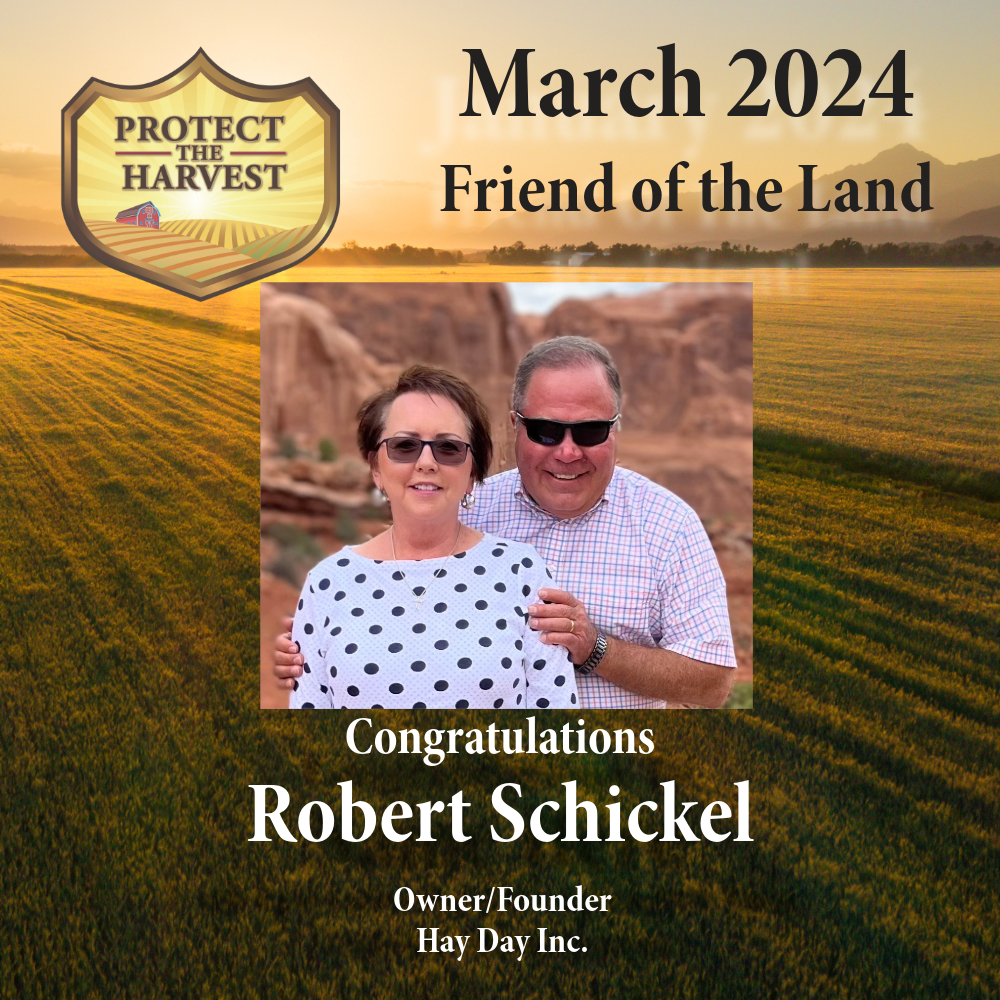By Jaclyn Krymowski for Protect The Harvest
The restrictive Hours-of-Service (HOS) rules from the Federal Motor Carrier Safety Administration (FMCSA) under the Electronic Logging Device (ELD) Mandate has prompted livestock haulers, producers, and agribusinesses into taking action since it came into effect in late 2017.
Exemption Transporting Livestock Across America Safely Act
Upon request from the livestock industry, an initial 90-day extension was granted as part of the Transporting Livestock Across America Safely Act (TLAAS) which was introduced to the Senate. This was the beginning of multiple legislative efforts to grant a permanent exemption and more appropriate regulations for animal agriculture, however, the work is still ongoing. The industry continues to make its voice heard that a resolution must be met as the mandate, as it currently stands, poses serious threats to animal welfare and transportation.
What’s the Deal?
An ELD (electronic logging device) records a vehicle’s hours of service details such as driving time, speed, routes, and mandated rest periods among other data. Upon reaching five miles per hour in the truck, the ELD will continually keep track of driving activity over the next 14 hours. According to the standard ELD regulations, the driver can only log 11 hours of drive time within each 14 hour time frame – no accounts are made for details including fueling, traffic, loading/unloading, etc. Livestock hauling regulations impacts more than food producers, it impacts everyone who hauls, including those who show animals.
The result is that drivers are covering as much road as they possibly can as soon as the clock starts. Within the first 11 hours they are then required to take a consecutive 30-minute break and no more than eight hours of driving can be done consecutively. When the 14 hours are maxed out, the driver is required to rest for 10 consecutive hours. If not, the ELD can write up as an “infraction” and reports to inspectors who review the log which can result in hefty fines.
For those who are hauling any type of livestock or live animals over long distances, this has some serious concerns. From a practicality standpoint, it is often not possible to unload a full semi-trailer of livestock in a safe and secure location and then, reload and continue on down the road. Likewise, keeping live animals standing in a still trailer for that long puts the welfare of the animals at risk. Doing so would have a detrimental impact on both the welfare of the animals and the integrity of our food supply chain.
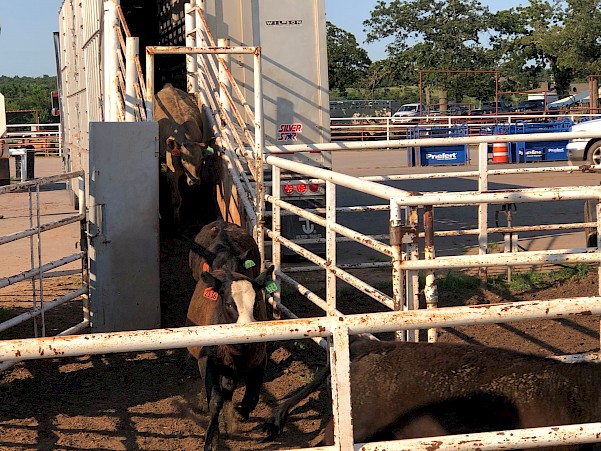
The Supply Chain for Food and Goods
With COVID restrictions being lifted and our country returning to traditional retail shopping patterns, the trucking industry is being kept especially busy as consumers are returning to stores. Likewise, packing plants are returning to their full capacity and grocery stores are back to fully stocked meat cases.
The livestock business is no stranger to rigorous trucking. The cattle industry, for example, is extremely complex and widespread. It is not uncommon for weaned calves to travel 1,000 miles or more from the place of their birth to the feedyard.
According to the National Cattlemen’s Beef Association in a 2016 Beef Quality Audit, animals traveled an average of nearly 300 miles to processing. That doesn’t even include how many thousands of weaned calves are transported to feedlots each year.
Not only does this transportation need to be timely for the sake of the beef cycle, but also for the well-being of the animals. The loading and unloading process for cattle, hogs, and poultry is time consuming. It is also an opportunity for injuries to be incurred due to the risk of animals becoming stressed or startled.
Keeping the loading process to a minimum is extremely important. In the summer months, livestock trailers are designed to streamline airflow to keep animals comfortable and prevent overheating while travelling on the highway. Having to stop for long periods of time can be very dangerous for heat stress. It can also upset the animals leading to stress, uneasiness and an opportunity for behavioral-related injuries.
Bees and Produce Impacted by Regulations Not Suited for Agriculture
ELD restrictions have left some concerned regarding perishable food items, especially those that are trucked out of California long distances, as reported by Capital Press and Southeast Ag Net.
Besides livestock, bees are also often shipped in trucks to pollinate crops. Like any other living animals, hives need to be transported as quickly as possible for the safety and well-being of the insects. Bees are extremely sensitive to heat and like livestock trailers, trucks are designed to ensure optimal cooling during transportation. Having to sit for hours on end in a still trailer is a major threat to their lives.
Consider that a loaded truck can carry an average of 400-450 individual hives. A truck-wide loss due to something preventable such as heat stress would be detrimental.
Taking Action – Modernizing Agricultural Transportation Act
With all of these concerns, livestock organizations are working to ensure that agriculture is exempt from the national ELD mandate. In March of this year, Senators John Hoven (R-ND) and Michael Bennet (D-CO) re-introduced the Modernizing Agricultural Transportation Act. This legislation was designed to reform ELD regulations by delaying the enforcement of ELD rules until the agriculture-appropriate changes are formerly proposed buy the Transportation Secretary.
The United States Cattlemen’s Association Transportation Committee Chair, Steve Hilker, said in a statement:
“USCA appreciates the leadership of Senators John Hoeven and Michael Bennet in recognizing the unique challenges associated with getting livestock to their destination as safely and efficiently as possible. As cattlemen and women, the welfare and comfort of these animals is our number one concern, and their needs vary greatly from the needs of a commercial driver transporting steel or furniture.
We look forward to utilizing this important bill to work alongside all stakeholders to identify workable solutions to the restrictive Hours-of-Service rules for livestock and insect haulers.”
Specifically, this legislation would do the following:
“This legislation would require the Secretary of Transportation to establish a working group within 120 days of enactment charged with-
• Identifying obstacles to the ‘safe, humane, and market-efficient transport of livestock, insects, and other perishable agricultural commodities’ and
• Developing guidelines and recommending regulatory or legislative action to improve the transportation of these commodities.”
And, within 120 days of the working group’s report, this legislation would require the Secretary to take into account those findings and propose regulator changes that must include changing the HOS and ELD regulations in regard to livestock.
The reintroduction of this bill is based on legislation introduced last year and is also a follow up to other legislative efforts that have successfully delayed the ELD rule of agriculture since 2018. Several representative organizations from cattle, pork, equine, sheep, poultry and aquaculture industries have voiced their support.
Taking Action – Haulers of Agriculture and Livestock Safety (HAULS) Act
Similar action is also happening in the House to supplement this legislation. The Haulers of Agriculture and Livestock Safety (HAULS) Act of 2021 was recently introduced to be a companion to prior efforts in the Senate. This act would effectively add a 150-air-mile radius exemption under HOS for both livestock and agriculture commodities. It would also eliminate seasonal harvest requirements necessary for the HOS exemption to make it available year-round.
Taking Action – Ramifications of Cyber Attacks
In response to the cyberattack on global meatpacker and distributor JBS, the U.S. Cattleman’s Association President, Dr. Brooke Miller, penned a letter to the Secretary of Transportation.
“After reviewing reports from our members regarding the impact of the JBS outage, USCA strongly believes this event warrants immediate regulatory action to ensure grocery store shelves stay stocked of fresh meat products. Further, agency action following the May 7, 2021, ransomware attack of Colonial Pipeline provides a precedent for the issuance of such an emergency declaration to ensure supply chain continuity of essential consumer goods.”
Extensions Simply Kick the Can Down the Road
For years now, the ELD mandate has left the livestock hauling sector in a bit of a limbo-like state without concrete progress to ensure the safety of the animals and the food chain. The extensions have temporarily protected the welfare of the livestock, but a long term solution has not surfaced. Livestock producers and industry professionals have adamantly voiced why extensions are not a solution, nor will extensions be sufficient or sustainable until a final ruling is made.
Industry organizations are continuing their efforts on behalf of producers to raise awareness and obtain results that will provide the security necessary for livestock businesses and haulers.
Livestock hauling is a significant link in our nationwide food chain. Haulers are trained individuals who have a huge task on their shoulders to transport live animals to their destination in a safe and humane manner. It is a job left to professionals who are committed to doing the right thing. To do that effectively the industry must be protected with laws that enable, not hinder, their haulers and businesses to do their job effectively.

